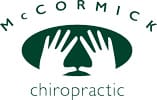
We are often asked questions about various treatment options and which ones offer the best outcome and chance for success. Over the last several years Spinal Decompression Therapy has become one of the most popular treatments that patients ask about. Is spinal decompression therapy a good treatment option? Well the answer is that it really depends on your condition and more specifically the condition of your spine.
Spinal decompression therapy is a treatment option for people with long-term back pain, sciatica, leg pain, degenerative disc disease, herniated discs, numbness and other conditions that have not responded to initial treatments such as chiropractic adjustments, manipulation and physical therapy. Compressed discs can lead to herniation, bulging or brittleness of the discs. The problem is often perpetuated because the compressed disc restricts the flow of nutrients to itself which it needs to heal. In addition to the pressure and compression, the nerve itself may not be able to receive the nutrients it needs to heal and work properly. Often, surgery is used to decompress the spine, which is invasive, painful, and carries significant risks. Medications to reduce pain are also often used, but they do not treat the source of the pain and only mask it.
Spinal decompression therapy is considered to be a non-invasive, non-surgical alternative that offers gentle decompression of the spine through the use of specially designed, FDA-approved equipment. Prior to treatment, patients are thoroughly examined both manually and through the use of imaging technology in order to determine which spinal discs are compressed, and if the treatment is suitable and has a high likelihood of success.
Patients are placed on a decompression table in a comfortable posture that depends on which area of the back needs treatment. The treatment applies a specific force to the compressed discs, and a computer alternates the decompression force with relaxation periods. Usually, there is a series of 10-20 alternating decompression and relaxation cycles, for an individual treatment times between 15-30 minutes. This process serves to gently elongate the spine and to create a vacuum that pulls the disc back into its proper location and shape within the vertebrae. Realigning the discs in this manner can reduce pain and promote healing. However, on average it will require 20 treatments to experience significant improvement with a compressed disc.
Is everyone with back pain a good candidate for spinal decompression therapy? Of course not. Research has shown it to be very effective for high percentage of patients but some patients it is not effective at all. At this point it is not entirely clear which people it will work best on. Therefore, it is important to work carefully with your chiropractor to be sure you have a good chance of successful treatment. Your chiropractor may precede each treatment with soft tissue muscle work to reduce the body’s natural reflex reaction and prepare the muscles for the traction forces. He or she will also work with other health professionals as needed to determine the precise nature of your back pain and the type of treatments that are most likely to resolve your pain at its source.
For Your Health,
Dr. Connor McCormick and Dr. Darryl Hajduczek
